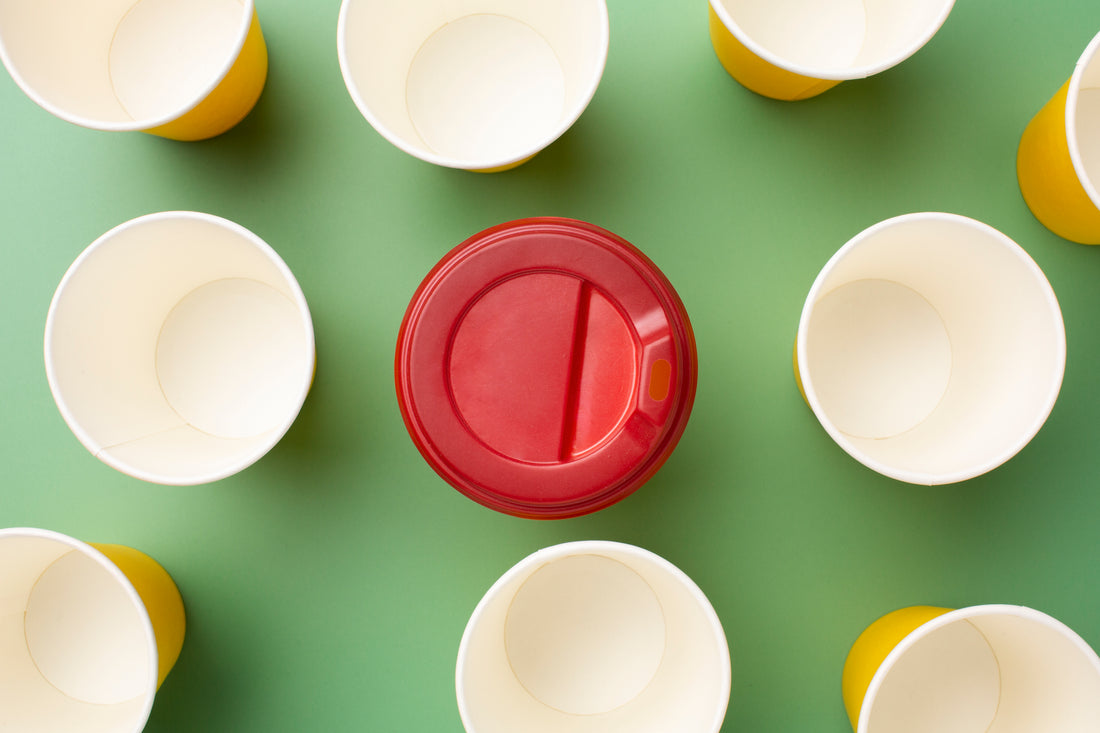PLA, or polylactic acid, is a revolutionary bioplastic that offers outstanding performance while having a positive impact on the environment. It is one of the first renewable polymers that can compete with traditional petroleum-based plastics, as it emits three times less CO2 emissions. As a 100% biosourced and biodegradable material, PLA has the potential to be the answer to the world's plastic pollution problem. Let's take a closer look at this amazing bioplastic and its applications.
The history of PLA dates back to 1845 when the chemist Théophile-Jules Pelouze first synthesised it. Since then, there have been several developments in the industrial synthesis of PLA, and its uses have expanded significantly. In the 1960s and '70s, PLA was mainly used in biomedical applications, such as biodegradable suture strings and implants for sustained drug release, due to its non-toxic and biocompatible nature. In the 1990s, the company Cargill developed an industrial process for synthesising high-molecular-weight PLA on a large scale, which allowed it to replace non-biodegradable polymers like PET and polystyrene.
The most significant advantage of PLA is that it is both biosourced and biodegradable. This bioplastic is made from renewable resources like corn or sugar cane, and lactic acid is fermented from sugar or starch to create a monomer called lactide. This lactide is then polymerised to produce PLA. Additionally, PLA can be composted and is certified to be OK HOME by the Tüv Austria organisation. The introduction of Evanesto®, an additive that accelerates the decomposition of PLA-rich plastics, has significantly improved its compostability, allowing it to be used in a variety of products.
PLA resins can be used without making significant changes to the plastics industry's existing tools, making it a cost-effective and efficient option. PLA is transparent, rigid, and has a shiny appearance similar to glass, making it ideal for many applications, such as food packaging, household goods, electronics, and automotive parts. PLA's biodegradability also makes it perfect for 3D printing filaments.
The future of PLA looks bright, with a predicted growth rate of 10-15% per year by 2025. The bioplastics market is expanding, and PLA's environmentally friendly properties make it a popular choice for consumers and manufacturers alike. As a leading company in the production and sales of PLA products, Sincdoo is committed to providing high-quality, eco-friendly products to its customers. With its outstanding properties and potential applications, PLA is the future of sustainable plastic manufacturing.
Biodegradable PLA-made clothing is becoming increasingly popular in the market, and Sincdoo is a leading producer of high-quality PLA-based products. As a company committed to eco-friendly and sustainable practices, Sincdoo provides biodegradable PLA products that help reduce plastic pollution and promote a healthier environment.
Biodegradable clothing made from PLA is an excellent alternative to traditional materials, as it is made from natural resources such as corn starch or sugarcane, and does not require the use of non-renewable resources. PLA-made clothing is also lightweight, comfortable, and breathable, making it an ideal choice for consumers looking for sustainable and stylish clothing options.
Looking to the future, the demand for biodegradable PLA-based products is expected to grow exponentially, driven by the increasing awareness of environmental protection and the need for sustainable solutions. Sincdoo is committed to meeting the needs of customers across various industries, from fashion to packaging, by providing high-quality and customizable PLA-based products that are both cost-effective and eco-friendly.
As a leading producer of biodegradable PLA-based products, Sincdoo is continuously innovating and improving its manufacturing processes to minimize waste and reduce its environmental impact. The company is also dedicated to promoting sustainable practices in the industry and raising awareness of the benefits of biodegradable products.
In summary, biodegradable PLA-made clothing is a sustainable and eco-friendly alternative to traditional clothing materials, and the market for such products is set to grow. Sincdoo is a trusted partner in the biodegradable PLA industry, providing customers with high-quality, customizable, and affordable products that promote a healthier environment. Whether you are a business looking to promote your brand in an eco-friendly way or an individual looking for sustainable clothing options, Sincdoo has you covered.

